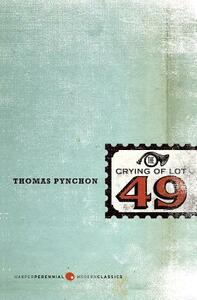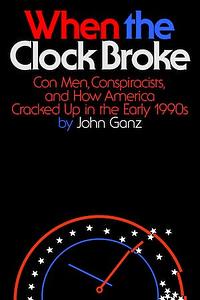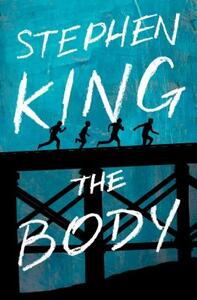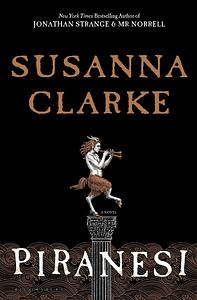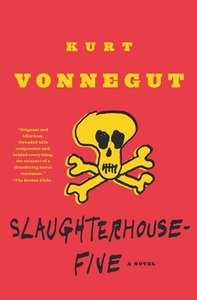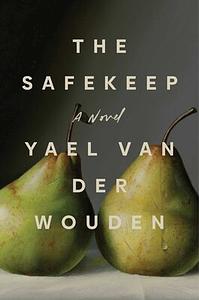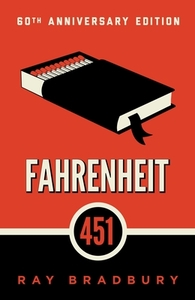You need to sign in or sign up before continuing.
Take a photo of a barcode or cover
davidaguilarrodriguez's Reviews (186)
challenging
funny
mysterious
medium-paced
Plot or Character Driven:
A mix
Strong character development:
Complicated
Loveable characters:
No
Diverse cast of characters:
No
Flaws of characters a main focus:
Complicated
Update: This book was a little mixed for me on first read, but I have been thinking of it ever since, so I raised my rating. This one maybe takes some time to simmer.
I think if this had been my first Pynchon book, it probably would have bounced off me and I wouldn't have come back for more (to my great loss, because I actually really like him). But having read Vineland and gotten Pynchon-pilled, I was mostly able to enjoy the ride. I guess what I'm saying is that I think this book is good, but I wouldn't start here with Tommy P.
I think if this had been my first Pynchon book, it probably would have bounced off me and I wouldn't have come back for more (to my great loss, because I actually really like him). But having read Vineland and gotten Pynchon-pilled, I was mostly able to enjoy the ride. I guess what I'm saying is that I think this book is good, but I wouldn't start here with Tommy P.
Crying of Lot 49 feels like an adrenaline shot of everything Pynchon does well but also everything he struggles with. The paranoia-conspiracy plot is intentionally abstract, the characters are thin and mostly symbolic, and the whole thing walks a fine line between brilliantly funny and narratively frustrating. But that’s kind of the point. It’s about entropy, communication breakdown, and the desperate need to assign meaning even when it may not be there. Or worse, when it might be — just out of reach.
I love Pynchon’s prose and humor in general, but this is probably my least favorite distillation of it. In his longer, shaggier works (Vineland, Mason & Dixon), there’s room to breathe — to let the jokes and absurdism unfurl, to build character, to let the weirdness accumulate until it starts to feel mythic. Crying of Lot 49 is wound too tight. It is clever, dense, carefully constructed -- definitely way tighter and sharply focused, but also less fun for it.
That said, the zany moments absolutely sparkle: the Nazi rooftop therapist Dr. Hilarius, the bathroom stall Tristero symbol, the play-within-the-novel, the weird songs and names. Pynchon is brilliant at building webs of paranoia and meaning but also making it silly and funny, rather than just heavy and relentlessly dark.
What is this book about? Everything and nothing. America. Madness. Lost mail routes. The deep fear that someone, somewhere, knows something you don’t — and that everything might be connected, or maybe you're just losing your mind. It’s prescient in a way that feels eerily in step with today’s online conspiracists and post-truth chaos. It's the book-length version of the Charlie Day Conspiracy Board meme or the classic Nirvana lyric: Just because you’re paranoid don’t mean they’re not after you.
This isn’t my favorite Pynchon — the lack of emotional resonance and fully realized characters holds it back for me. But it’s smart, sharp, and occasionally hilarious. A young man’s brilliant literary and philosophical pyrotechnics. Not as wise or generous as his later work, but still good.
When the Clock Broke: Con Men, Conspiracists, and How America Cracked Up in the Early 1990s
DID NOT FINISH: 15%
Dull, obvious.
Also: engages in fatphobia to criticize people who need only be criticized through an analysis of their actions. These men were evil because of their immoral deeds, not because some random examples happened to be fat. Some of the most evil were not fat, and regardless that has nothing to do with morality. Taking potshots in this way perpetuates negative stereotypes and hatred toward an entire group of people.
Weak history, weak arguments, weak sauce.
Also: engages in fatphobia to criticize people who need only be criticized through an analysis of their actions. These men were evil because of their immoral deeds, not because some random examples happened to be fat. Some of the most evil were not fat, and regardless that has nothing to do with morality. Taking potshots in this way perpetuates negative stereotypes and hatred toward an entire group of people.
Weak history, weak arguments, weak sauce.
Moderate: Fatphobia
adventurous
emotional
funny
reflective
fast-paced
Plot or Character Driven:
A mix
Strong character development:
Yes
Loveable characters:
Yes
Diverse cast of characters:
No
Flaws of characters a main focus:
No
One of the best things I’ve read by King.
It’s short, but it packs a punch — a haunting coming-of-age story about friendship, fear, loss, and that bittersweet moment when the world begins to feel just a little too real. The mood is pitch-perfect: that mix of summer freedom, buried trauma, and the quiet ache of knowing that childhood never really stays.
The characters are both deeply alive and slightly mythic — the wildcard, the quiet observer, the nervous one, the courageous but troubled leader. Archetypes, yes, but written with such care and emotional clarity that they feel completely human. And the book’s wisdom about childhood friendships — how intense they are, how formative, and how inevitably they fade — is beautifully done.
King’s prose here is some of his best. Nostalgic with some haunting elements (but not horror!). He captures so much: the pain of distant parents, the menace of bullies, the oppressive small-town gravity, and the unpredictability of life. Some characters escape. Some die. Others hit the big time.
I haven’t seen Stand By Me yet, but I’m excited to now that I’ve read the story. This was excellent!
informative
medium-paced
Informative. But wow, yeah, Twain was a bit of a creepy creep, eh? Too bad, I used to think highly of him.
challenging
emotional
funny
reflective
sad
tense
medium-paced
hopeful
mysterious
reflective
relaxing
sad
tense
medium-paced
Plot or Character Driven:
A mix
Strong character development:
Yes
Loveable characters:
Yes
Diverse cast of characters:
Complicated
Flaws of characters a main focus:
No
So fucking good.
I almost gave up after 40 pages. The early sections felt circular, cryptic, and confusing. Was having such a hard time following anything or getting into it. I genuinely thought, “If this is what the whole book is, I’m out on this entire style.” But then… it started to shift. And deepen. And unravel. And from around page 50 onward, I realized we were going to be uncovering this mystery one page at a time.
And I couldn’t put it down! This book was so great!
What begins as a surreal, meditative tour of a dreamlike House becomes something far more layered — a philosophical mystery, a quiet psychological thriller, and a haunting meditation on memory, identity, and solitude. Clarke’s control over tone and pace is masterful. She trusts you to sit in the fog until you start to see shapes forming, and then the revelations start hitting you like a marble statue to the brain.
This is a book about what happens when the world strips you of yourself — and what it means to rebuild your mind, your ethics, your humanity from inside a broken system. Quietly profound. Mythic. Poetic. Deeply moving.
Don’t let the early sections throw you off, it starts to make sense eventually and when it does, oh baby is it worth it.
challenging
dark
funny
sad
medium-paced
Plot or Character Driven:
Character
Strong character development:
Yes
Loveable characters:
Complicated
Diverse cast of characters:
Complicated
Flaws of characters a main focus:
Complicated
There’s nothing new I can say about Slaughterhouse-Five, and whatever great things have already been written about this book — they’re true.
It’s a darkly comic tour de force. A surreal, sci-fi-infused war novel about the futility of violence, the wreckage of PTSD, and the impossibility of narrating horror. Vonnegut lived through Dresden. He saw the unseeable. And somehow, miraculously, he turned that experience into a book that is hilarious, devastating, absurd, philosophical, brutal, and tender all at once.
The time jumps, the aliens, the mordant black humor, the flat affect, the sudden bursts of raw feeling — it all works. It shouldn’t, but it does. Vonnegut pulls together all these disparate threads and somehow creates something unified, something with its own weird gravity. It feels both emotionally raw and coolly resigned — like watching the end of the world through a cracked mirror while cracking a joke.
I was surprised at how cohesive it felt, given how fragmented it is. This is absolutely one of the great American novels.
There’s no real reason this shouldn’t be a 5-star book. It really is. The only thing holding me back is that, for personal taste reasons, I’m less drawn to war stories and philosophical fatalism than other themes. But that’s about me — not the book. It’s brilliant. It’s iconic. It absolutely hits the mark on what it sets out to do.
reflective
medium-paced
Plot or Character Driven:
Character
Strong character development:
Yes
Loveable characters:
No
Diverse cast of characters:
No
Flaws of characters a main focus:
Yes
A novel that starts at zero, crawls through the first three quarters, and then, almost too late, heats up. The Safekeep has a serious structural problem: the first 75% is stuck in a small, airless loop, then the final quarter suddenly delivers plot twists, stakes, and emotional weight. I actually initially DNF'd it, but then I changed my mind a few weeks later and went back to finish it. It did turn things around eventually, but overall not worth it.
Painfully sluggish until the home stretch. The first 40% felt like narrative quicksand. Things perk up slightly once Isabel and Evadevelop a sexual relationship , but without a strong underlying hook, the middle still drags. Not until the last act do events take on urgency.
Painfully sluggish until the home stretch. The first 40% felt like narrative quicksand. Things perk up slightly once Isabel and Eva
The world feels confined and flat — mostly stuck inside a single house, without the sense of place or tension to make it atmospheric. This could have been claustrophobic in a good way; instead it’s just small.
Repression, secrecy, queer desire, inheritance, post-Holocaust Jewish identity. It reminded me of the film Ida, but without that film’s tight grip and emotional intensity.
Isabel, our lead, is an unpleasant but mildly compelling presence. Eva doesn’t truly make sense until the final chapters — a problem when the whole book hinges on her. By the time the layers peel back, it’s clear how much stronger the earlier chapters could have been with her full complexity in play.
The final quarter shifts perspective from Isabel’s limited view into Eva’s truth, revealing her motivations and injecting real stakes. This is the moment the book becomes interesting — and it’s exactly the kind of information that should have dropped by the midpoint. Van der Wouden opts for surprise when suspense would have worked better. Hitchcock would shake his head in dismay.
The prose was languid, florid. The style wasn’t the core problem, but it reinforced the pacing issues. A leaner, more thriller-like delivery could have brought out the story’s potential.
Ultimately, the ending recontextualized much of what came before, but the road to get there was too long and too slow. With some restructuring, this could have been a taut, psychologically charged novel. As it stands: a slog with a decent finish.
informative
medium-paced
Good info about the making of, publication, and legacy of Les Miserables
challenging
dark
tense
fast-paced
Plot or Character Driven:
A mix
Strong character development:
Yes
Loveable characters:
Complicated
Diverse cast of characters:
No
Flaws of characters a main focus:
Complicated
We need not to be let alone. We need to be really bothered once in a while. How long is it since you were really bothered? About something important, about something real? - Ray Bradbury
The best lack all conviction, while the worst / Are full of passionate intensity. - W.B. Yeats
Much has already been said about Fahrenheit 451, but it lives up to the hype.
The best lack all conviction, while the worst / Are full of passionate intensity. - W.B. Yeats
Much has already been said about Fahrenheit 451, but it lives up to the hype.
The writing is electric — intense, poetic, visceral — and the message is as urgent now as ever. It’s not just about censorship or book burning, but about distraction, apathy, disconnection, and a society that chooses comfort over truth. Replace TV with phones/social media, and this is basically set in 2025.
A classic for a reason.
